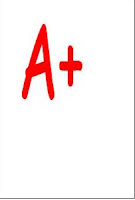Reaching Our Full Potential
 |
| https://www.flickr.com/photos/bycp/5694880836/ |
Mentoring is something that I think about all the time since that is a good portion of my job as the Associate Principal. We have a year-long program of orientation, observation and mentorship for our new teachers. And that is in addition to anything that they might be working on for BTSA. So that is great in theory. Lots of support for teachers and staff new to our community. But what exactly should that program entail and what is my role as well as what is the role of the mentors on our campus. Those are big questions that I have wrestled with since taking on this position because I feel that strong mentorship can be the difference for a new teacher. So while I have "official" mentors for every new teacher, I really consider the entire staff mentors because they all can contribute something to the growth and comfort level of the new members of the community.
Good mentors need to be coaches for matters that affect both direct teaching as well as more general community interactions. Good mentors make sure a teacher is comfortable with both the lesson they want to deliver as well as how to make copies for the lesson materials and order the whiteboard markers that they will need to facilitate their instruction. Good mentors are that extra set of eyes in the classroom on occasion to provide constructive feedback but they also make sure the mentee has someone to sit with in the lunch room and knows where the bathrooms are. Good mentors really need to fill the role of coach, confidante, supporter.
Joining a new community is just as overwhelming for an experienced teacher as it is for a first year teacher. Every school community is different. Your content is basically the same but your family expectations vary, the actual students will be different in the sense that there will be unique differences based on their demographics, and the adult community of the site will be very different. I have been at my school since 1999. I am not unusual in our community. However, in that time I have seen many teachers come and go. They all have a different story and they all have different needs in order to feel like they fit in. And face it, we all have that little bit of high school angst inside of us that appears when we move to a new community. We desperately want to "fit in" ourselves.
As educators, fitting in means understanding the dynamics of several different constituencies: departments/learning teams, students, parents, administration, board. A good mentor can and must help facilitate that adjustment if schools are to cultivate strong communities that can meet the needs of their students on a daily basis.
Adult mentors ultimately work to ensure that the mentee reaches their full potential as an educator just as educators work to ensure that their (our) students reach their full potential. It boils down to the same desired outcome. Mentors push, mentors challenge, mentors model. Mentors engage in meaningful conversation and help stretch their mentee's thinking. And really, isn't that our goal in life? To ensure that we reach our full potential, which we can only truly do with supporters and coaches along the way to encourage, to push, to challenge, and to cheer us on when we fail and when we succeed.



Comments
Post a Comment
Thanks for sharing your thoughts!